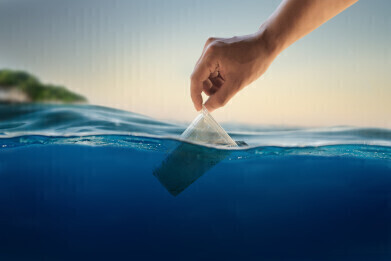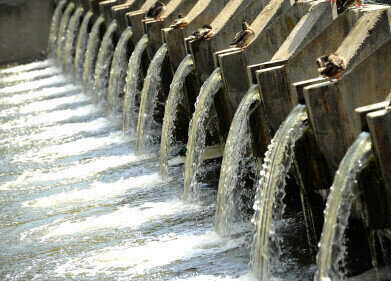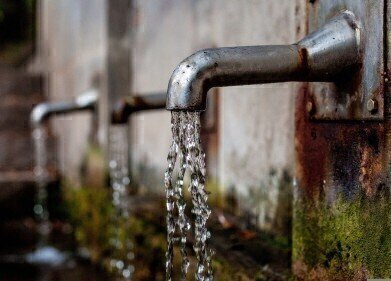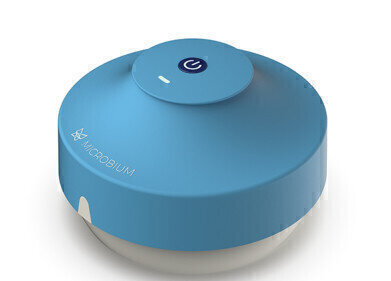Drinking Water
How one Canadian firm is using the power of the ocean to desalinate the ocean
Nov 09 2023
When we talk about climate change, we typically restrict our coverage to the impact on things like sea-level, average local temperatures, declining crop yields and storm strength, which not only obscures the massive loss of life that is almost certainly to result from any of these eventualities but fails to wrestle with what will become global warming’s primary impact on every region’s viability for human settlement: the loss of drinking water. Besides, perhaps, the sheer terror of confronting this possibility, it is often ignored simply because it is considered covered under ‘loss of ice-sheets and glaciers’ in the list of impacts – but many people remain unaware that these aggregations of ice constitute the central pillar of survival for vast swathes of the globe. Recently, EnvirotechOnline covered China’s rush to get a grip over exactly what’s happening to the Tibetan glacier, which supplies over 2 billion people or – to put it in even more staggering terms – nearly a quarter of the global population in some of the world’s most crucial breadbasket regions. By 2100, forecasts of our current emissions trajectory put the depletion of the glacier between 84% and 97% - in just 80 years, the same distance between today and the end of the Second World war, one quarter of the global population could be put to death by dehydration.
With such freshwater sources under threat around the world, then, attention is turning to the shoreline: what if the planet’s abundant saltwater resources, resources that are becoming even more abundant and even less salty as the icecaps melt, could be tapped? To do that, we’ll need a suite of next-generation desalination tech – and lots of it.
As things stand, however, desalination is not only carbon-intensive, such that solving the problem in this way would only help to accelerate the loss of drinking water but can very easily cause extreme ecological harm when the brine that is a by-product of the process gets released into the ocean, resulting in hyper-salination that extinguishes most marine life.
But in a groundbreaking mission to mitigate the global water crisis without further contributing to carbon emissions, a Canadian company, Oneka Technologies, is pioneering an innovative approach to desalination. The Quebec-based startup has developed an avant-garde solution that harnesses the boundless energy of the ocean waves to convert saltwater into fresh, drinkable water. Oneka Technologies’ floating desalination units, anchored securely to the ocean floor, utilize a membrane-based system, known as reverse osmosis, to purify seawater. The process is elegantly simple: wave energy is converted into mechanical energy, powering pumps that draw in seawater and push a portion through a semipermeable membrane to filter out the salt. The result is clean, potable water delivered to shore through pipelines, propelled by the very force that generated it: the undulating waves of the sea. “Oneka's technology is 100% mechanically driven," Hunt told the BBC, underscoring the zero-electricity operation of their machines. Such innovation represents a seismic shift towards sustainability in desalination practices.
The units, which come in various sizes, are both adaptable and scalable. They require waves of merely one meter in height to function and are poised to be commercially available in 2024. The largest unit, spanning 8 meters by 5 meters, has the capacity to generate up to 49,000 litres of drinking water each day. Furthermore, the concentrated brine, a byproduct of desalination, is diluted with seawater before being reintegrated into the ocean, significantly reducing the ecological impact compared to traditional methods. But they’re not just scalable in terms of output. The buoys are designed to operate without disrupting marine ecosystems, addressing one of the critical environmental concerns associated with desalination plants.
As such, Oneka's floating desalination systems offer the beginning of an alternative, a means of strengthening water access for many communities adapting to our over-heated world. Firms like Oneka are setting a new standard for the desalination industry, charting a course for a future where the provision of essential resources aligns with the imperative to protect our planet.
Digital Edition
IET 34.2 March 2024
April 2024
Gas Detection - Biogas batch fermentation system for laboratory use with automatic gas analysis in real time Water/Wastewater - Upcycling sensors for sustainable nature management - Prist...
View all digital editions
Events
Apr 30 2024 Melbourne, Australia
Apr 30 2024 Birmingham, UK
May 03 2024 Seoul, South Korea
May 05 2024 Seville, Spain
May 06 2024 Minneapolis, MN, USA



















